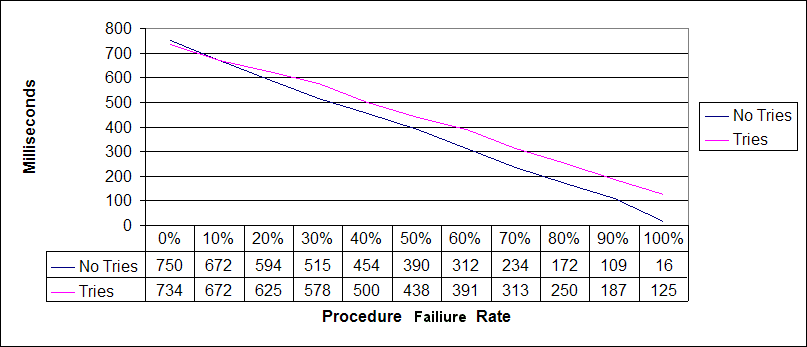I had quite an interesting result when I looked further into the performance of this type of function..
I ran the test 10 times, starting with a 0% failiure rate for the inner procedure and increasing each time by 10%.
Here's my code: Note label1 is a valid control on the form.
And it turns out that if your function works fine almost all the time (ie. a best case), a try except clause is actually *slightly* faster! I guess this is because the Non-Try code has one extra If Then statement. But from about 10-15% failiure rate, the overhead of the try except clause can be seen, and it is pretty big...Code:var count : integer; loop, bigloop : integer; start : cardinal; fred : TLabel; begin for bigloop := 0 to 10 do begin count:=0; fred:=nil; start:=getTickCount; for loop:=1 to 1000000 do begin inc(count); if random*10 > bigloop then fred := label1 else fred := nil; if (fred<>nil) then fred.caption:='Hello'; end; memo1.lines.add('No Try : '+intToStr(getTickCount-start)); count:=0; start:=getTickCount; for loop:=1 to 1000000 do begin try inc(count); if random*10 > bigloop then fred := label1 else fred := nil; fred.caption:='Hello'; except end; end; memo1.lines.add('Try : '+intToStr(getTickCount-start)); memo1.lines.add(' '); end; end;
P.S. Dont quote me here. Does it look believeable to you? Have I got my 'math' right?









Bookmarks